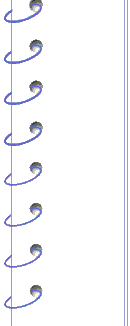

Let me turn you into an efficient Internet Search SpyLooking for good information? You just have to know how to search Spy ! Online there is a wealth of information. Your capability to search the information on the Internet is a meaning of how exact your queries are and how efficiently you make use of search services. Poor queries come back with poor results; good queries come back with good results. Opposite to the hype nearby intelligent agents and artificial intelligence, the truth is that search results are simply as good as the query you ask and the way you search.
Missing these techniques, a search spy will waste time looking at ineffective documents that don�t contain what you want. Or stop in annoyance after search reviewing long lists of useless documents.
Example: we write the keywords to look like system or systems Why is this important? Actions like verbs, modifiers like adjectives, adverbs, predicate subjects, and conjunctions are ignored by the search engines or too much variable to be helpful to a search spy.
Example: we write the keywords to look like old, planet, planets, discover, solar, system Why is this important? More additional keywords, selected at the proper level, may decrease the universe of possible search results returned by 99% or even more.
Example: we write the keyword plus �*� to look like planet* or discover* Why is this important? By using the asterisk (*) wildcard, the wildcard informs the search engine to match all characters which follow it, saving keyword slots and rising search spy coverage by 50% or even more.
Example: we write the keywords plus �*� plus �OR� to look like discover* OR find Why is this important? Cover the possible different ways a thought can be described; in general stay away from OR in another case.
Example: we write the keywords to look like "solar system*" Why is this important? Use quotes to represent phrases. Phrases limit search results to EXACT matches; if joining terms is a natural marriage, narrows and targets results many times.
Example: we write the keywords to look like "solar system", "old planets*", discover* OR find Why is this important? Triangulating on many query ideas narrows and targets results, in general by more than 100 to 1.
Example: we write the keywords to look like ("solar system") ("old planet*") (discover* OR find) Why is this important? Nest every single query "concept" using parentheses. (Too much for now, but good practice when first learning.) Simple way to ensure the search engines evaluate your query in the way you want, from left to right.
Example: we write the keywords to look like ("new planet*") (discover* OR find) ("solar system") Why is this important? Put main subject first. Search engines tend to rank documents more highly that they match first terms or phrases evaluated.
Example: we write the keywords to look like ("old planet*") AND (discover* OR find) AND ("solar system") Why is this important? Operator AND glues the query together. The resulting of that gluing query is neither overly sophisticated nor nested.
|










 There are very efficient ways to arrange queries and use certain operators to object the results you search for.
There are very efficient ways to arrange queries and use certain operators to object the results you search for.
